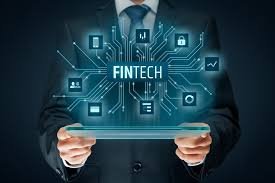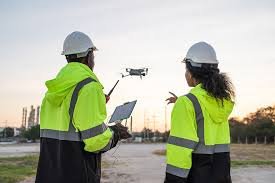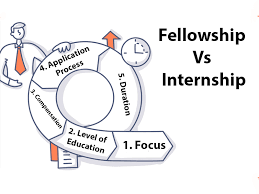
Fintech & Blockchain Starter Roles: Your Guide to the Future of Finance
Fintech & Blockchain Starter Roles – “Get Hands-on with the Future of Finance”
Are you fascinated by the intersection of technology and finance? Do terms like "blockchain," "cryptocurrency," "digital payments," and "algorithmic trading" pique your interest? If so, you're likely drawn to the dynamic and rapidly evolving world of Fintech and Blockchain. Landing a starter role in this cutting-edge industry is an exciting prospect, offering a chance to be at the forefront of innovation that's reshaping how we manage, move, and interact with money.
The Fintech (Financial Technology) sector leverages technology to improve and automate the delivery and use of financial services. This encompasses a vast range of applications, from mobile banking and peer-to-peer lending to sophisticated risk management systems and regulatory technology (RegTech). Blockchain technology, with its decentralized and transparent ledger system, underpins many groundbreaking Fintech innovations, including cryptocurrencies, smart contracts, and secure digital identity solutions.
Breaking into this exciting space might seem daunting, but numerous "starter roles" serve as excellent entry points. These positions offer the opportunity to gain hands-on experience, learn from industry experts, and contribute to the development of groundbreaking financial solutions. This guide will explore the types of starter roles available in Fintech and Blockchain, the skills and qualifications typically sought, and how you can position yourself to secure one of these coveted positions, ultimately allowing you to "get hands-on with the future of finance."
Understanding the Fintech & Blockchain Ecosystem
Before diving into specific roles, it's crucial to grasp the diverse landscape of the Fintech and Blockchain ecosystem. It's not just about cryptocurrencies; the industry encompasses a wide array of companies and applications:
-
Payment Processors: Companies revolutionizing how we make and receive payments, often leveraging mobile technology and digital wallets.
-
Lending Platforms: Online platforms facilitating peer-to-peer lending or offering alternative credit scoring and loan origination processes.
-
Investment and Trading Platforms: Platforms providing access to financial markets, often incorporating algorithmic trading, robo-advisors, and cryptocurrency trading capabilities.
-
Banking Software and Infrastructure Providers: Companies developing the core technology that powers modern financial institutions.
-
Blockchain Development Firms: Organizations focused on building and deploying blockchain solutions for various industries, including finance.
-
Cryptocurrency Exchanges and Custodians: Platforms for buying, selling, and securely storing digital assets.
-
Regulatory Technology (RegTech) Companies: Developing solutions to help financial institutions comply with complex regulations.
-
Security and Fraud Detection Companies: Utilizing advanced technology to protect financial systems and user data.
This diverse ecosystem offers a wide range of potential entry points, depending on your skills and interests.
Common Fintech & Blockchain Starter Roles
While specific job titles may vary, several common starter roles provide a pathway into the Fintech and Blockchain industry:
-
Business Analyst: Fintech and Blockchain companies rely heavily on data-driven decisions. Business Analysts play a crucial role in understanding business needs, gathering requirements, analyzing data, and proposing solutions. They often act as a bridge between the technical and business teams. For entry-level positions, strong analytical skills, excellent communication, and a basic understanding of financial concepts are usually required. Familiarity with data analysis tools and techniques is a plus.
-
Junior Software Developer/Engineer: As technology is at the heart of Fintech and Blockchain, there's a constant demand for skilled developers. Junior roles involve assisting senior engineers in building, testing, and maintaining software applications, including payment systems, trading platforms, and blockchain protocols. Proficiency in programming languages like Python, Java, C++, or Solidity (for blockchain development) is essential. A strong foundation in computer science principles and a passion for learning new technologies are highly valued.
-
Technical Support Specialist: Providing technical assistance to users of Fintech and Blockchain products is crucial for a positive user experience. Technical Support Specialists troubleshoot issues, answer inquiries, and provide guidance on using various platforms and applications. Strong problem-solving skills, excellent communication, and a patient and customer-centric approach are key requirements. A basic understanding of the underlying technologies is also beneficial.
-
Content Writer/Marketing Assistant: Communicating complex Fintech and Blockchain concepts in a clear and engaging manner is vital for marketing and user education. Content Writers and Marketing Assistants create blog posts, articles, website copy, social media content, and other materials to educate the audience and promote the company's products and services. Strong writing skills, an understanding of digital marketing principles, and an ability to learn about technical topics are important.
-
Compliance/KYC Analyst: With increasing regulatory scrutiny in the financial sector, Compliance and KYC (Know Your Customer) Analysts play a critical role in ensuring that Fintech and Blockchain companies adhere to legal and regulatory requirements. Entry-level roles often involve assisting with customer onboarding processes, verifying identities, and monitoring transactions for suspicious activity. Attention to detail, strong analytical skills, and an understanding of regulatory frameworks are essential.
-
Project Coordinator/Administrator: Supporting the smooth execution of Fintech and Blockchain projects requires strong organizational and administrative skills. Project Coordinators and Administrators assist project managers with tasks such as scheduling meetings, tracking progress, managing documentation, and facilitating communication between team members. Excellent organizational skills, attention to detail, and proficiency in project management tools are valuable assets.
Skills and Qualifications for Starter Roles
While specific requirements will vary depending on the role, some common skills and qualifications are generally sought for Fintech and Blockchain starter positions:
-
A Strong Interest in Finance and Technology: A genuine passion for the industry is often the most important attribute.
-
Relevant Educational Background: Degrees in finance, economics, computer science, engineering, mathematics, or related fields are often preferred, but not always mandatory.
-
Technical Skills: Proficiency in relevant programming languages, data analysis tools, or specific software applications, depending on the role.
-
Analytical and Problem-Solving Skills: The ability to analyze complex information and develop effective solutions.
-
Communication Skills: Both written and verbal communication skills are crucial for collaborating with teams and interacting with users or clients.
-
Adaptability and a Growth Mindset: The Fintech and Blockchain landscape is constantly evolving, so a willingness to learn and adapt is essential.
-
Basic Understanding of Fintech and Blockchain Concepts: Familiarity with key terms and concepts in the industry is a significant advantage.
How to Position Yourself for a Starter Role
Breaking into Fintech and Blockchain requires a proactive and strategic approach:
-
Educate Yourself: Take online courses, read industry publications, and follow thought leaders on social media to deepen your understanding of Fintech and Blockchain.
-
Network: Attend industry events, join online communities, and connect with professionals in the field on LinkedIn.
-
Build a Portfolio: If you're interested in development, work on personal coding projects related to Fintech or Blockchain. If you're interested in content, start a blog or contribute to online publications.
-
Highlight Relevant Skills: Tailor your resume and cover letter to highlight the skills and experiences that are most relevant to the specific role you're applying for.
-
Consider Internships: Internships are a fantastic way to gain hands-on experience and make valuable connections in the industry.
-
Be Persistent: The job market can be competitive, so don't get discouraged by initial rejections. Keep learning, networking, and applying.
Conclusion: Your Journey into the Future of Finance Begins
Starter roles in Fintech and Blockchain offer an incredible opportunity to be part of a transformative industry. By understanding the ecosystem, identifying relevant roles, developing the necessary skills, and strategically positioning yourself, you can take the first steps towards a rewarding career at the forefront of financial innovation. Embrace the challenge, stay curious, and get ready to "get hands-on with the future of finance."
FAQs
1. Do I need a technical background to get a starter role in Fintech or Blockchain?
Not necessarily. While many roles, particularly in development and engineering, require technical skills, there are also numerous opportunities in areas like business analysis, marketing, compliance, and project management that may not require a deep technical background. However, a general understanding of technology and a willingness to learn are always beneficial. Highlight any transferable skills you possess, such as analytical abilities, communication skills, and problem-solving capabilities.
2. What are some good resources for learning more about Fintech and Blockchain?
There are many excellent resources available. Some popular options include:
-
Online Courses: Platforms like Coursera, edX, and Udemy offer courses on Fintech, Blockchain, and specific technologies like cryptocurrency and smart contracts.
-
Industry Publications: Follow websites and publications like CoinDesk, The Block, Finextra, and TechCrunch for the latest news and insights.
-
Books: Numerous books provide comprehensive overviews of Fintech and Blockchain.
-
Podcasts: Listen to podcasts focused on Fintech and Blockchain to stay updated on industry trends.
-
Online Communities: Engage with online forums and communities on platforms like Reddit and Discord to connect with other enthusiasts and professionals.
3. Given that I am currently in Kathmandu, Nepal, are there specific considerations for finding Fintech and Blockchain starter roles?
Yes, your location in Kathmandu, Nepal, introduces some specific considerations:
-
Local Fintech Ecosystem: Research the local Fintech landscape in Nepal. Identify any emerging Fintech startups or established financial institutions that are adopting new technologies. Networking within the local community can be particularly valuable.
-
Remote Opportunities: Many Fintech and Blockchain companies, especially those based in more established hubs, offer remote work opportunities. Expand your job search to include international companies that hire remotely. Be prepared for potential time zone differences and communication styles.
-
Skill Demand in Nepal: Understand the specific Fintech and Blockchain skills that are currently in demand within Nepal. This might include expertise in digital payments, mobile banking solutions relevant to the local market, or blockchain applications for supply chain or identity management.
-
Networking Events in Nepal: Look for local tech meetups, conferences, or workshops related to Fintech and Blockchain in Kathmandu. Attending these events can help you connect with local professionals and learn about opportunities.
-
Consider Regional Opportunities: Explore opportunities in neighboring countries or regions where the Fintech and Blockchain industry might be more mature. Remote work or potential relocation could be options to consider.
-
Highlight Cross-Cultural Skills: If applying for international roles, emphasize your ability to work effectively in a global team and your adaptability to different cultural contexts.




